I Just Discovered That This Controversial Product Is the Secret to Makeup That Lasts Beyond 3PM
It might be controversial, but I'll always choose a silicone-based primer over a silicone-free one. Here's why.
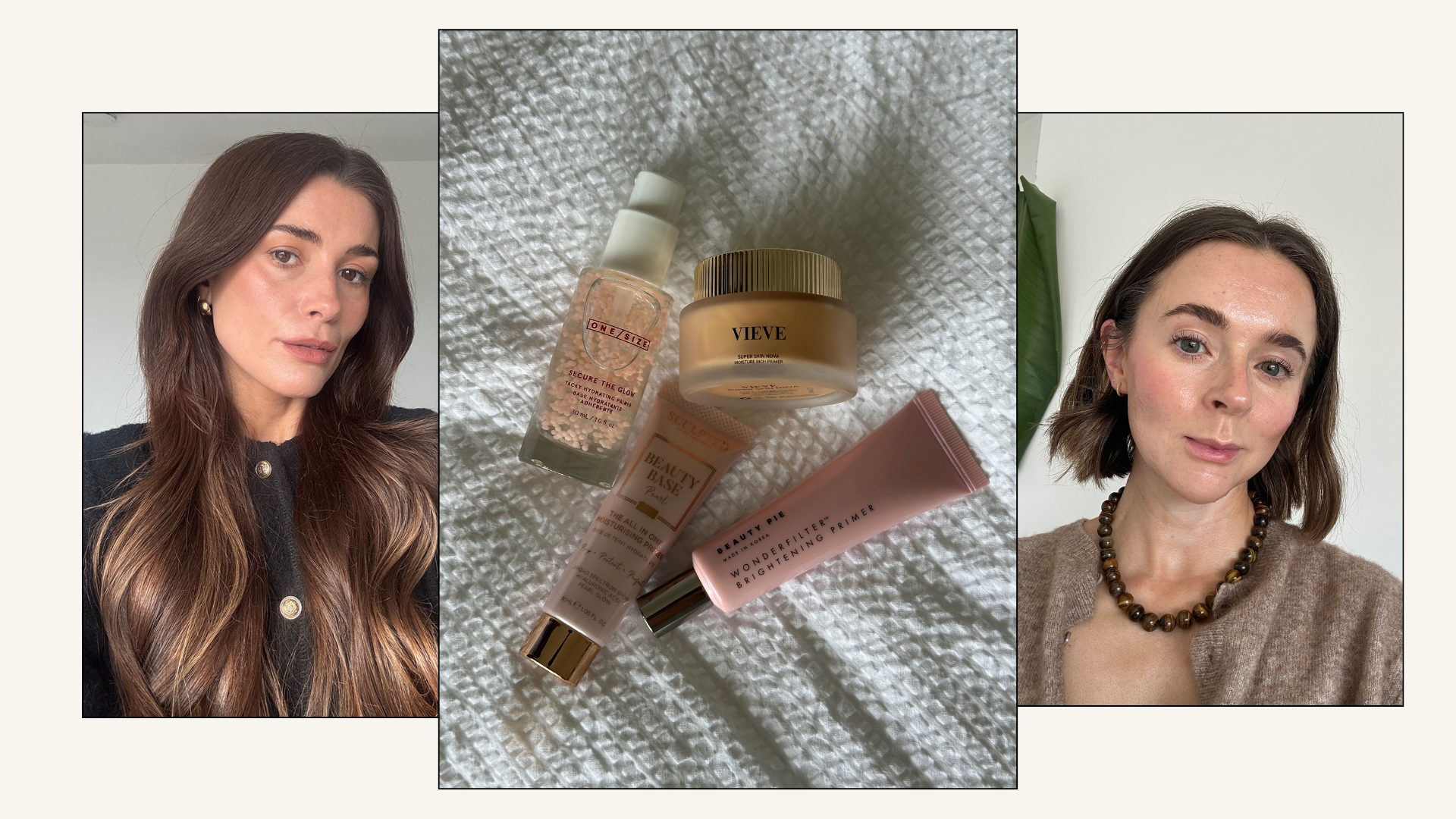
We've all been there—you spend your morning makeup routine buffing and blending your way to a flawless base, only to find that, come 3PM, your makeup has either A) caked up and settled into your pores, fine lines and dry patches or B) slipped and faded away entirely.
The hard truth is that sometimes even the best foundations, setting sprays, and finishing powders don't stand a chance against the environments we're exposed to. Dehydrating offices, humid climates and sweaty commutes all impact the way makeup looks and lasts on skin, as do our skin types. Both dry, thirsty complexions and oily, breakout-prone ones come with their own frustrations—and as for combination skin types, you're often up against both.
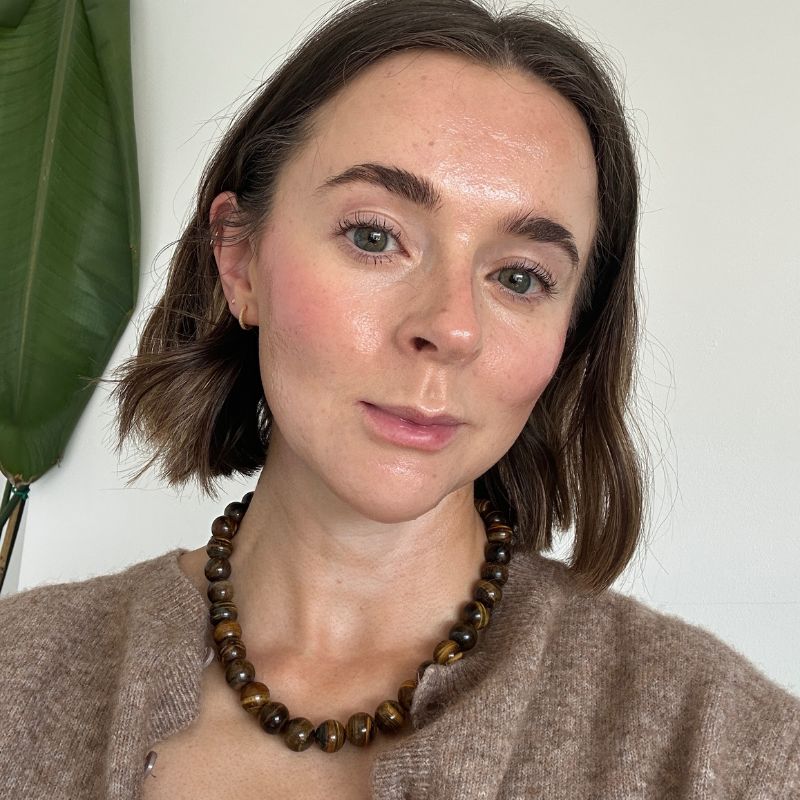
This is where primers come into play. Yes, it does mean adding an extra step into your makeup routine, but if it keeps your makeup looking fresh and locked in place then it's totally worth it, right? Now I've tested a lot of primers in my time, and one thing I've noticed is that not all primers are created equal. If you truly want a primer that delivers results—smooth application, longevity, and a flawless finish, then a silicone-based primer makes all the difference.
This might surprise you—after all, brands often label products as 'silicone-free' as a benefit, which has led to a perception that silicones are bad for skin and should be avoided. In actual fact, there really are very few reasons to avoid silicones, especially in primers. Personally, I've found that (when compared with silicone-free formulas) silicone-based primers help my makeup to apply smoother, last longer, and look fresher as the day goes on.
Whether your skin is dry, oily, or somewhere in between, we can all benefit from using a silicone-based primer. From illuminating primers to pore-primers, scroll down to discover my tried-and-tested favourites.
What to look for in silicone-based primers
When shopping for silicone-based primers, look out for common silicones that provide smoothing and blurring effects—such as dimethicone, cyclopentasiloxane, crimethylsiloxysilicate, and dimethicone crosspolymer.
In addition, depending on your skin concerns and goals, you may want to check for other ingredients that might help to brighten, hydrate, or mattify your skin. If you have dry skin, look for added glycerin or hyaluronic acid, or if you have oily skin, keep an eye out for niacinamide or salicylic acid.
As above, it's important to keep in mind the compatibility of the primer with your foundation. To avoid pilling, silicone-based primers work best with silicone-based foundations—so if you're currently using a water-based foundation, a water-based primer might be a better option.
The best silicone-based makeup primers
- Best for dry skin: Vieve Super Skin Nova Moisture Rich Primer
- Best for sensitive skin: Beauty Pie Wonderfilter Brightening Primer
- Best for dull skin: Sculpted By Aimee Beauty Base Pearl All In One Moisturising Primer
- Best for long wear: One Size Secure The Glow Tacky Hydrating Primer
- Best for oily skin: Dcypher Blur Balance Primer
- Best for breakout-prone skin: Benefit The Porefessional Primer
1. Vieve Super Skin Nova Moisture Rich Primer
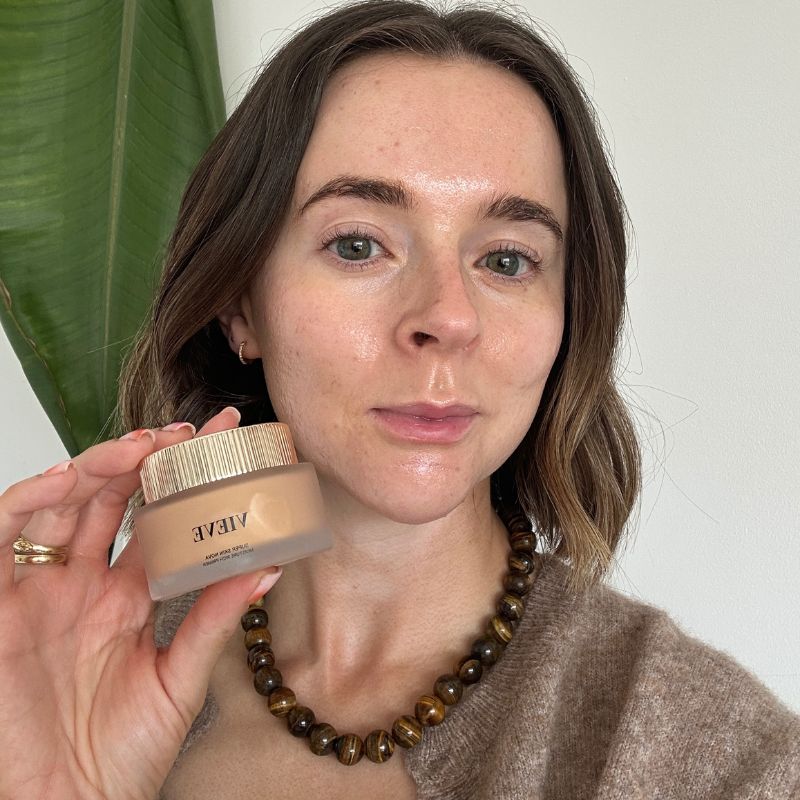
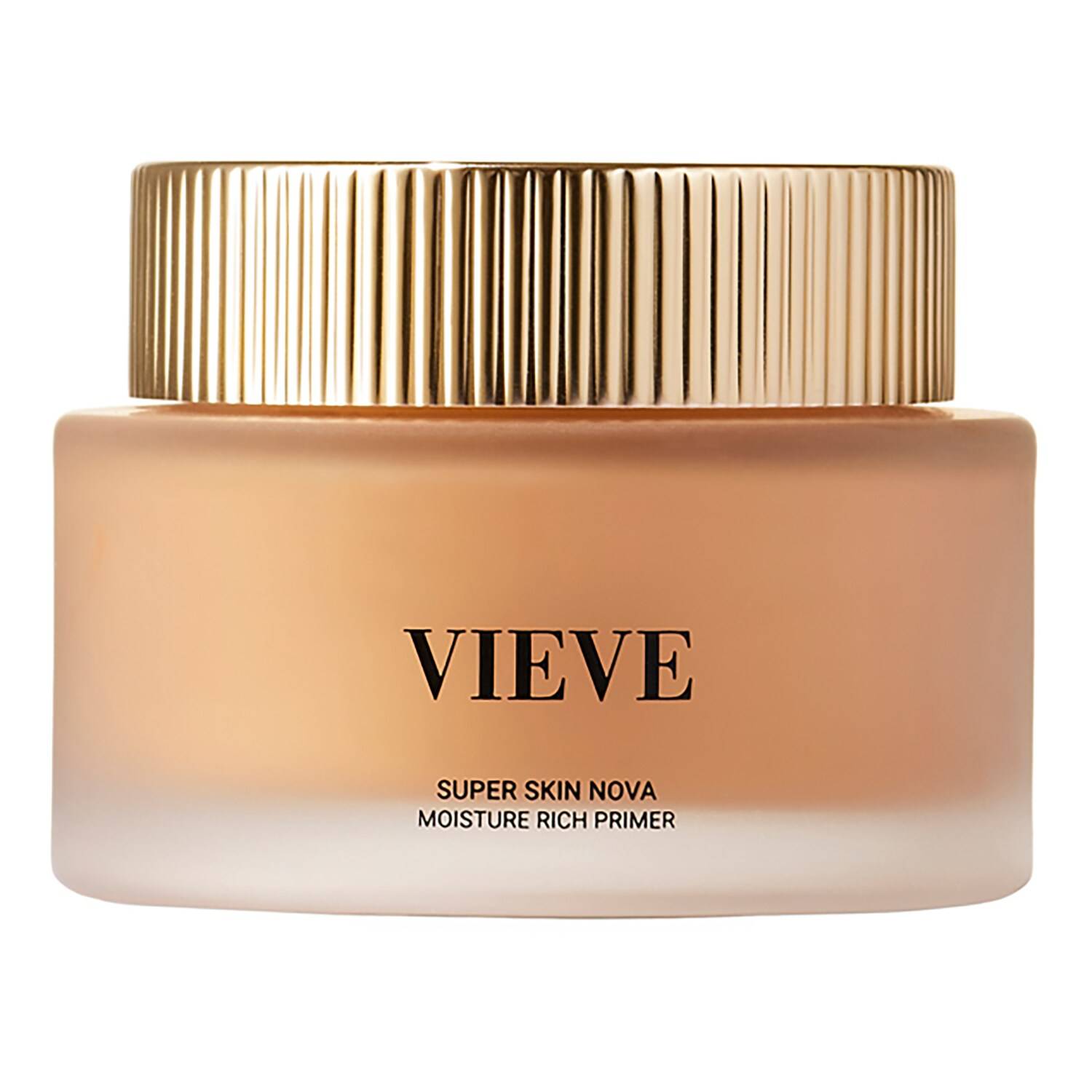
Best for: Normal to dry, dull, or mature skin
This radiant, glow-boosting primer is every bit as nourishing as a moisturiser, so is an excellent choice for those who have dry or dehydrated skin types. By packing skin with moisture, it boosts hydration levels and smooths away flaky or rough texture.
Editor review: In the winter months, my skin is prone to dryness and dehydration, which means that my makeup starts to look flaky and patchy as the day progresses—basically my thirsty skin is trying to absorb the moisture from my foundation. At times like these I know that it takes a certain type of primer to prevent this from occurring—one that's rich and hydrating. I've long since loved Vieve's original Skin Nova Primer, but this ultra-thick version is a lifesaver for combating the effects of dryness.
Pros
- Hydrating and nourishing
- Radiant, lit-from-within glow
- Includes niacinamide and vitamin C derivatives
Cons
- May be too glowy for oily skin
2. Beauty Pie Wonderfilter Brightening Primer
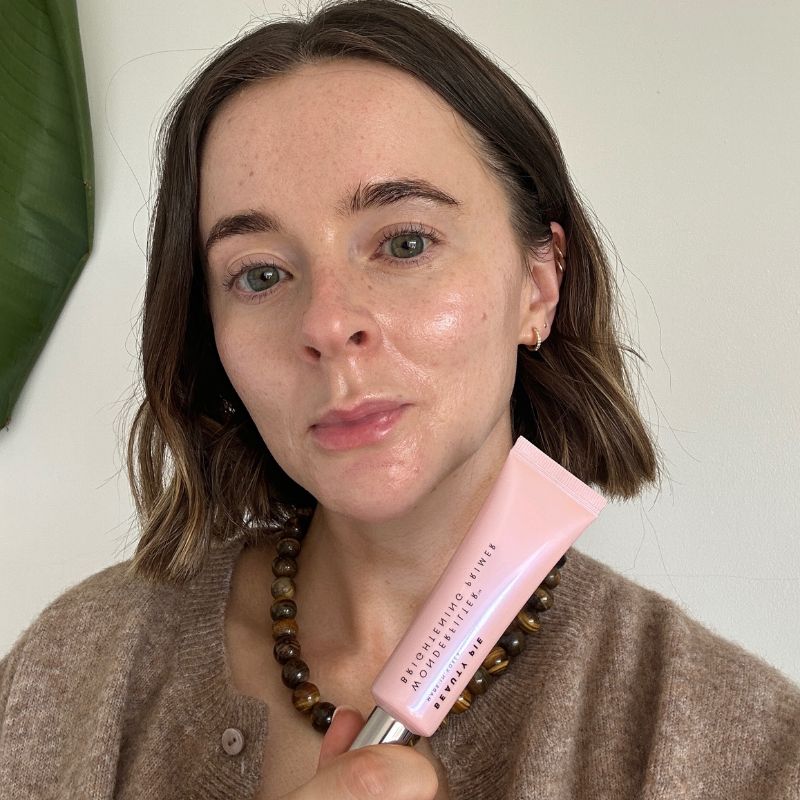
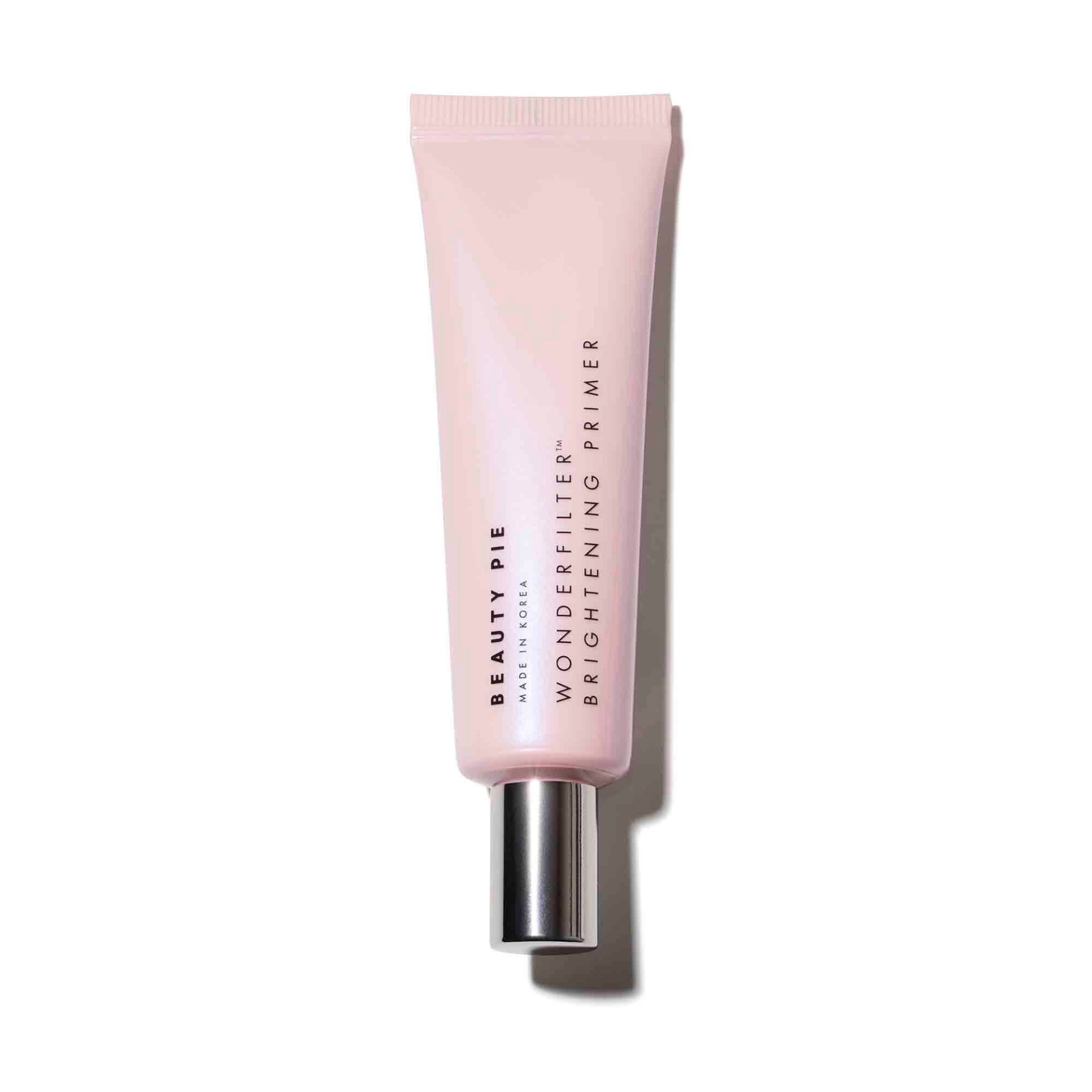
Price shown is member price.
Best for: Normal to combination skin
A lightweight and hydrating primer, packed with skin-barrier supporting ingredients like glycerin, squalane, and ceramides, makes this a perfect pick for skin prone to sensitivity. Plus, the addition of light-reflecting micro-pearls helps to offset any redness.
Editor review: Granted, less-is-more is my usual approach to skin sensitivity, but if you have a long day ahead and need your makeup to last intact, then a primer is essential. Even when my skin is feeling a little more reactive, I've never experienced any issues in using Beauty Pie's Wonderfilter Brightening Primer. It has a light texture and feels cooling and soothing upon application.
Pros
- Blurs pores
- Brightening effect
- Affordable via subscription
Cons
- May pill with certain foundations
- Affordable price only available to subscribers
3. Sculpted By Aimee Beauty Base Pearl All In One Moisturising Primer
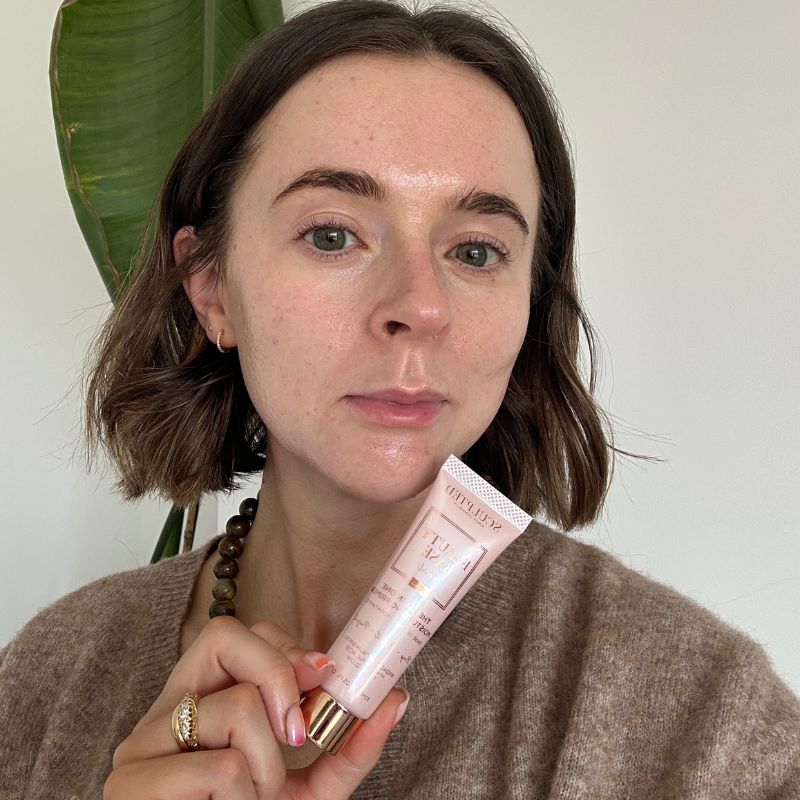
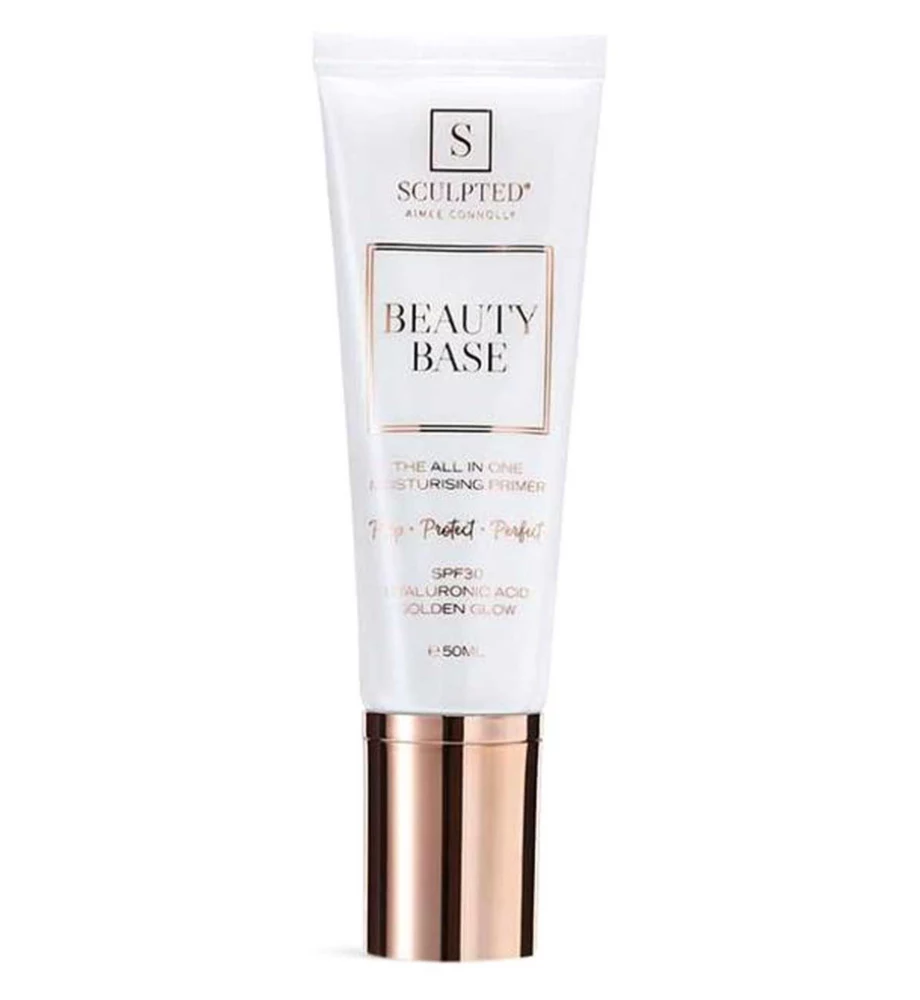
Best for: Dull skin
Light-reflecting pearlised pigments and a potent dose of hyaluronic acid makes this formula one of the best when dull skin is a concern. It not only immediately brightens skin but keeps it looking fresh and radiant all day long.
Editor review: When my skin is in need of a brightening boost, this is my go-to, and completely negates the need for a highlighter. Even when I've layered concealer and foundation on top, the dewy glow shows through.
Pros
- SPF protection
- Luminous, radiant finish
- Works as moisturiser and primer
Cons
- May not suit very oily skin
4. One Size Secure The Glow Tacky Hydrating Primer
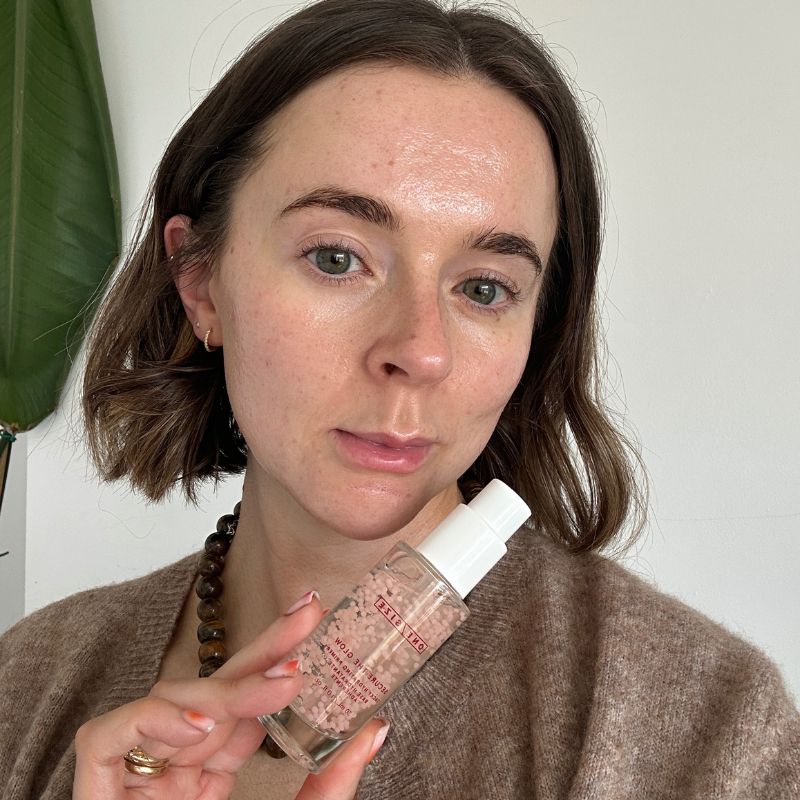
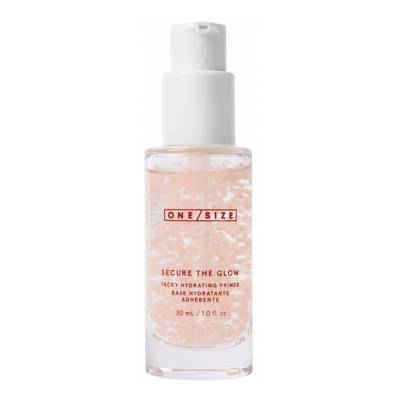
Best for: Dry, dehydrated, or combo skin
When makeup longevity is top of the agenda, you really can't beat a silicone-based primer for ensuring that makeup stays in place. This formula is designed to layer an ever-so-slightly sticky texture onto skin, which means makeup adheres and (critically) doesn't budge. if you need your makeup to do a long shift or stand up against high temperatures of humid climates, look no further.
Editor review: The word 'tacky' is rarely used as a positive when it comes to skincare and makeup, but when it comes to priming skin for long-wear makeup, it's one of the best features a primer can have. This clear fluid creates the perfect canvas for makeup application and ensures that my foundation stays locked in place, no matter what life throws at it.
Pros
- Gripping formula extends wear
- Hydrating and dewy
- Non-comedogenic
Cons
- May feel sticky initially
- Glow may look greasy on oily skin
5. Dcypher Blur Balance Primer
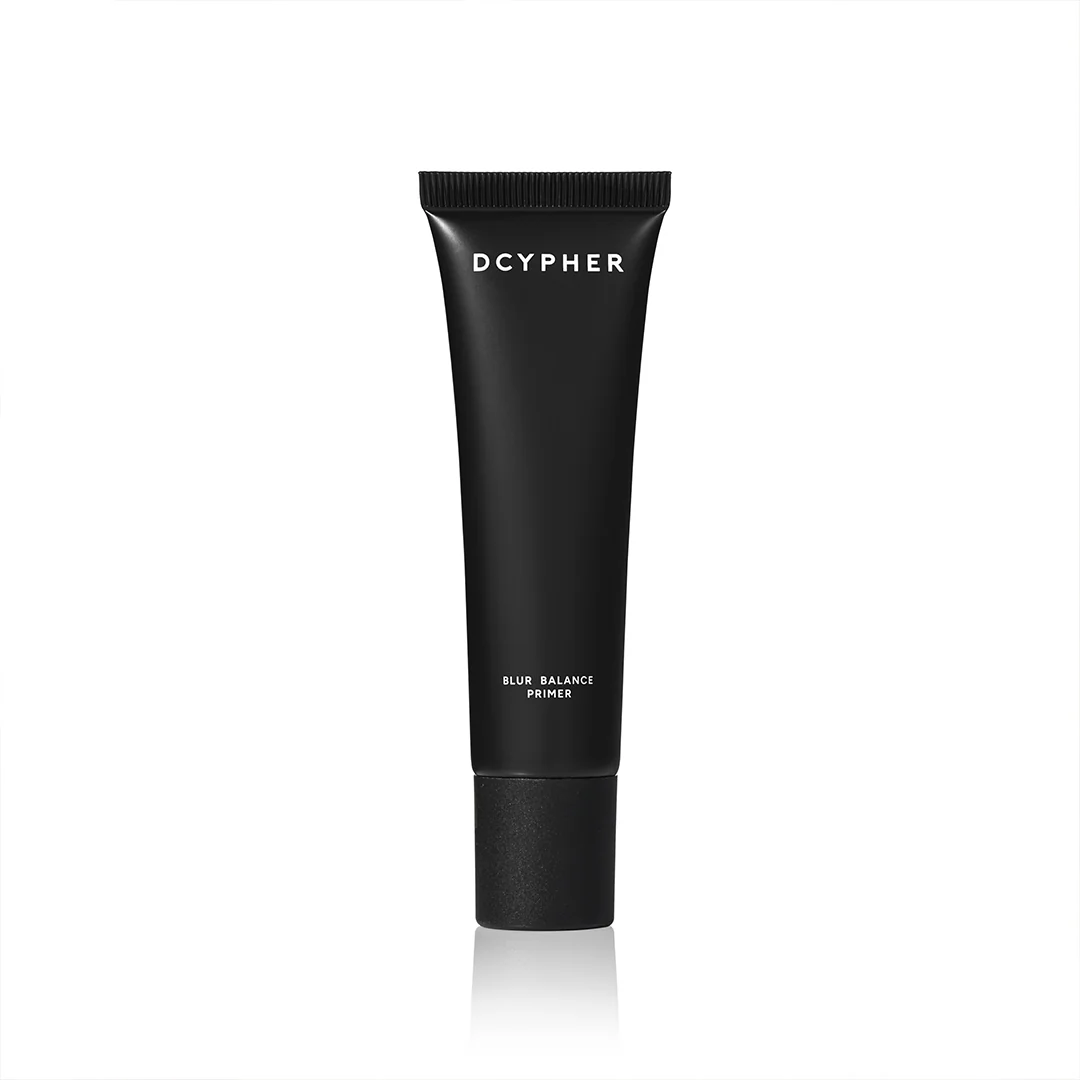
Best for: Oily to combination skin
A silicone-based primer can be a game changer for oily complexions, since the excess oil that skin produces throughout the day can quickly and easily impact makeup. Noticing that your concealer has slid down your face or your foundation faded by 3pm? Oil is to blame. The silicones in this formula create a layer between skin and makeup that prevents oil from coming through and the mattifying finish helps to reduce any unwanted shine.
Pros
- Strong oil control
- Smoothes texture
- Lightweight feel
Cons
- May be too mattifying for dry skin
6. Benefit The Porefessional Primer
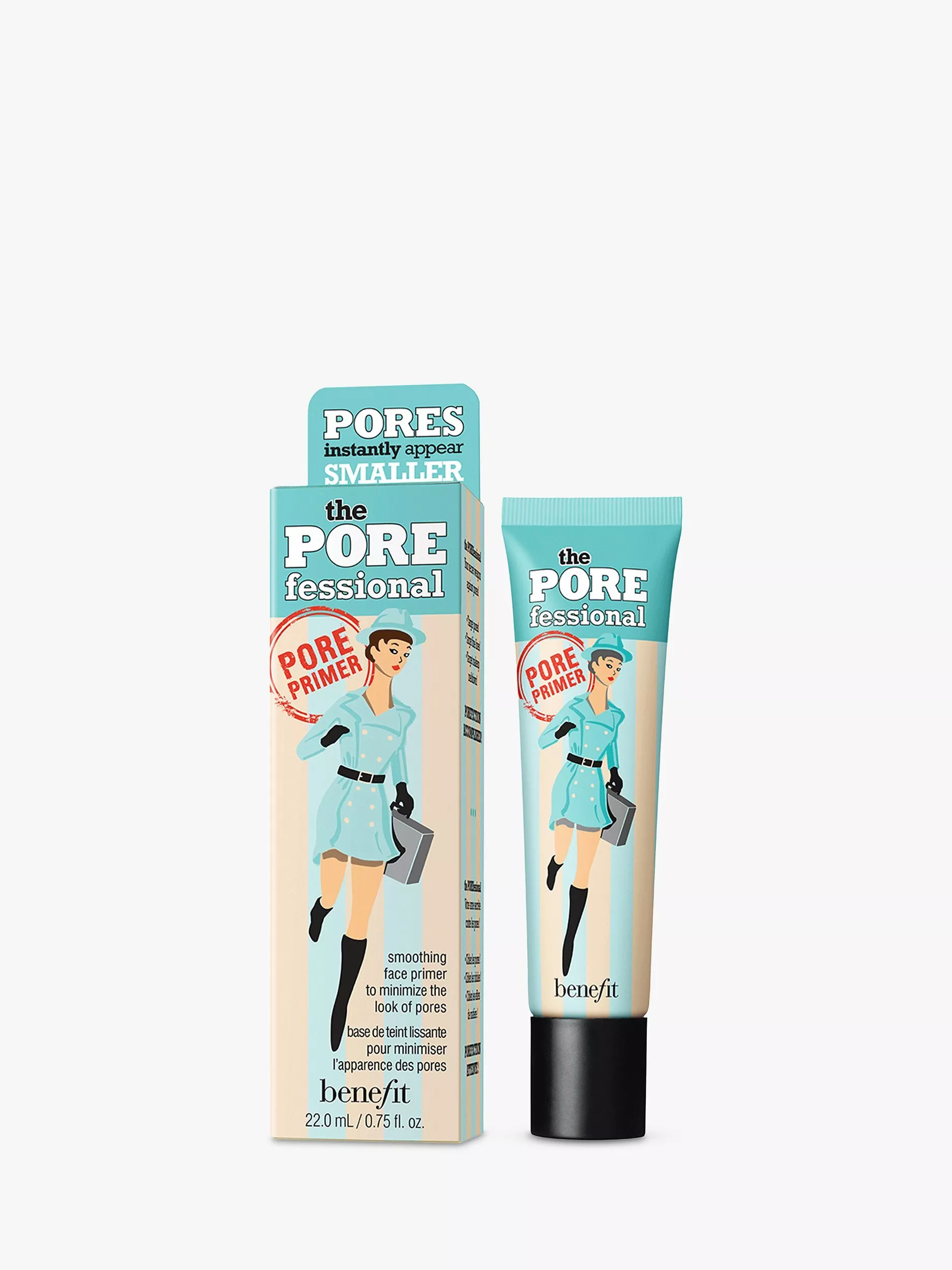
Best for: Normal to oily skin
Breakouts, blackheads, and enlarged pores are usually high up there on most people's lists of skincare concerns. While concealers and foundations might seem like the obvious choice for reducing their appearance, the right primer can go a long way towards doing the same. This smoothing formula has long held cult status, especially for those looking to address the appearance of blemishes.
Pros
- Excellent pore-filler
- Smooth, silky texture
- Quick-blur effect
Cons
- Doesn’t add hydration or skincare benefits
7. Hourglass Vanish Airbrush Primer
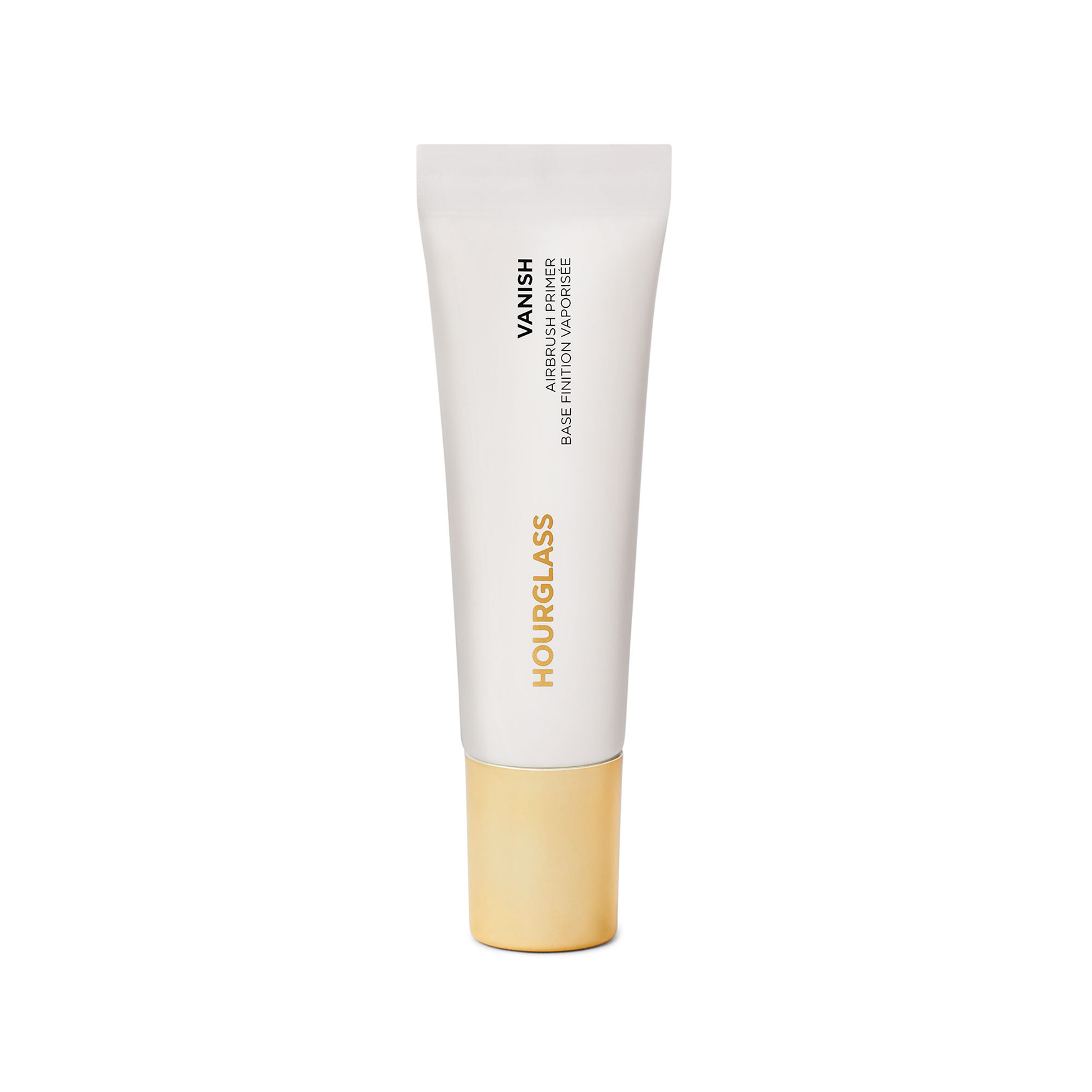
Best for: Combo to oily skin
Not everyone reaches for makeup primer on a daily basis, but if you're someone who likes to add it into your makeup routine ahead of special occasions, then your top reason for doing so is likely to improve your makeup application. After all, the smoother skin is, the better makeup applies and the longer it lasts for. This one is packed with silicones, so effortlessly fills in pores and lines, preventing makeup from setting into or clinging to textured skin.
Pros
- Silky, soft-focus finish
- Blurs pores and fine lines
- Long-lasting grip
Cons
- Expensive price point
8. E.l.f. Mineral-Infused Primer
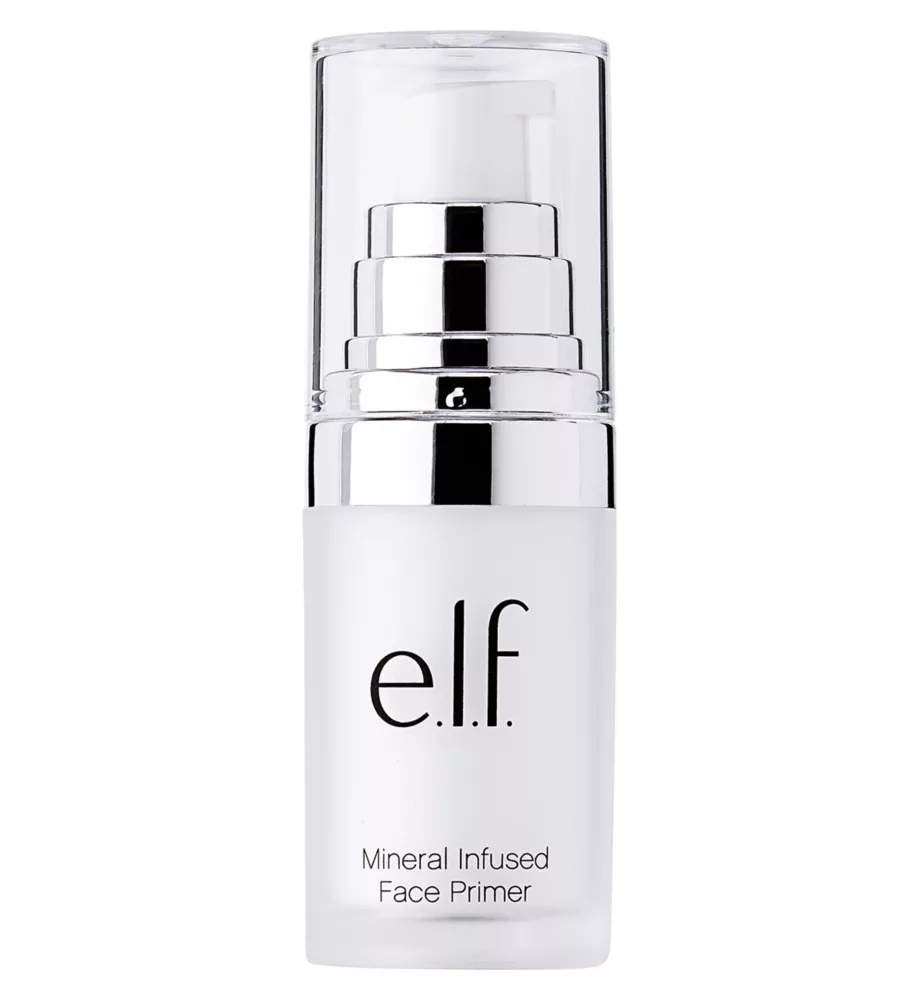
Best for: Normal to oily skin
When skin is dealing with both dryness and oiliness, a primer needs to fight a battle on two fronts—hydrating and smoothing flaky texture, while also dealing with excess oil and preventing shine. This mineral-based formula is an impressive multitasking one, so manages to do both—and you don't to break the bank in the process.
Pros
- Affordable
- Silky texture
- Pore-blurring effect
Cons
- Basic formulation
- Can feel heavy on very oily skin
9. Tatcha The Liquid Silk Canvas Primer
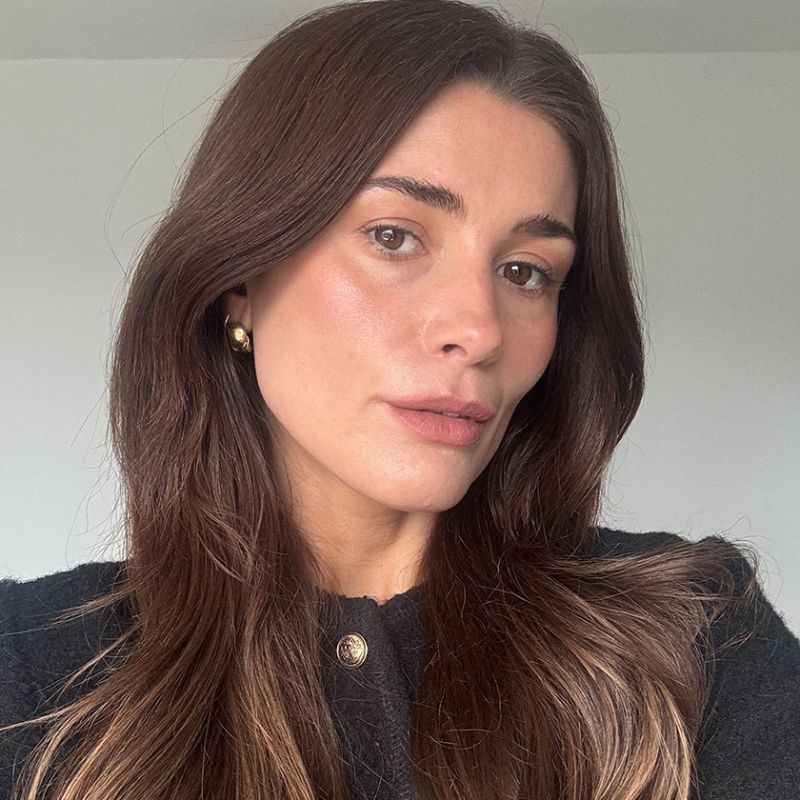
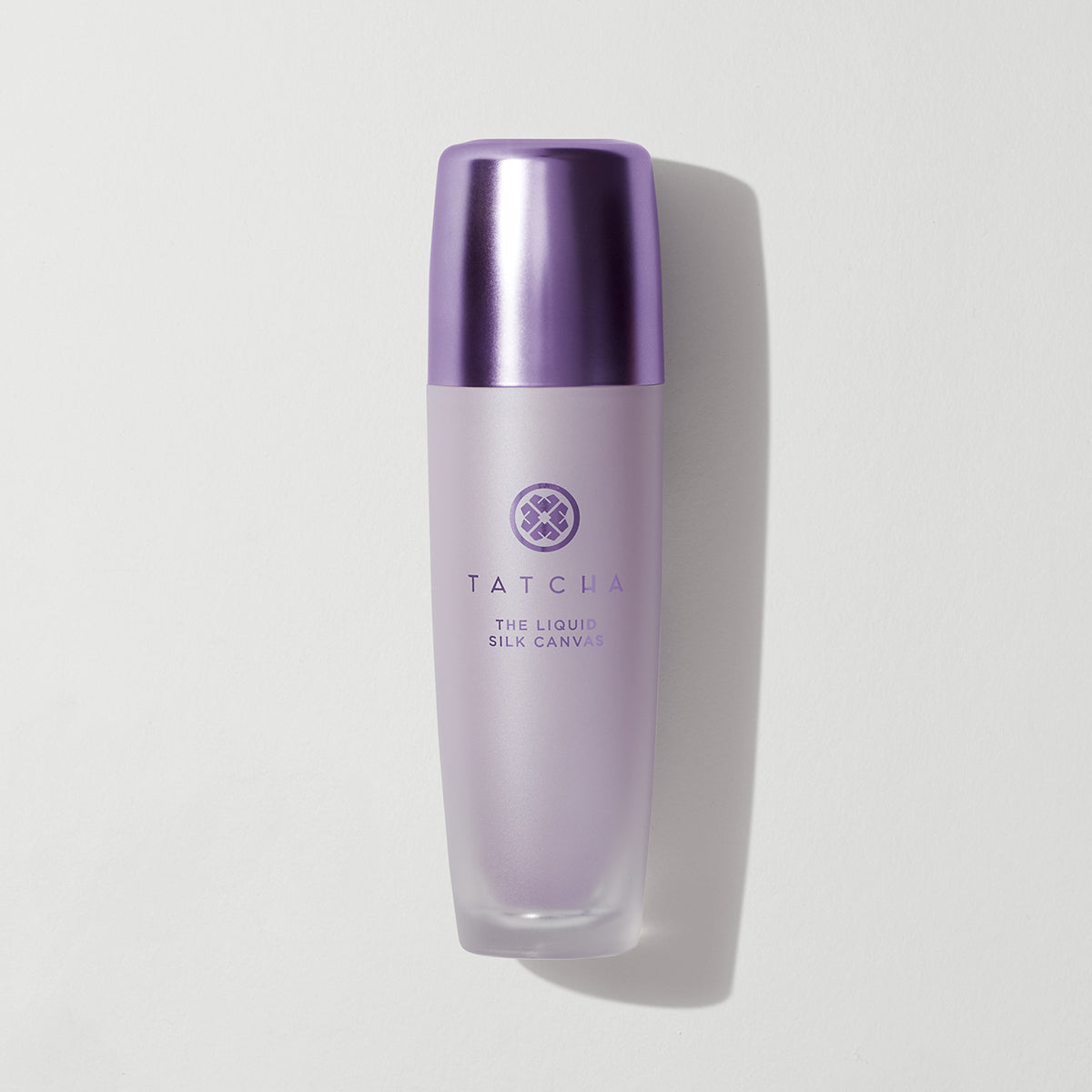
Best for: Normal to combination skin
Tatcha is renowned for its deeply hydrating and glow-boosting skincare products, so it only makes sense that the brand makes an exceptionally good primer. After all, good makeup starts with good skin. This silky solution moisturises, smooths, and brightens, while delivering a host of potent skincare ingredients to skin in the process.
Eleanor's review: "Tatcha is renowned for its luxurious formulas and textures and its primer is no exception," says Who What Wear beauty editor, Eleanor Vousden. "With its silky formula, it glides onto the skin and dries into a soft finish, diffusing lines and blurring pores while ensuring your makeup stays put for longer. It works well on my combination skin, but if you're prone to dryness, I recommend trying The Silk Primer (£51), which comes in a creamy consistency, helping your makeup glide on seamlessly without highlighting dry patches."
Pros
- Blurring + smoothing
- Protects skin from pollution/makeup
- Skincare-rich formula
Cons
- Expensive price point
10. NYX Professional Makeup Studio Perfect Primer
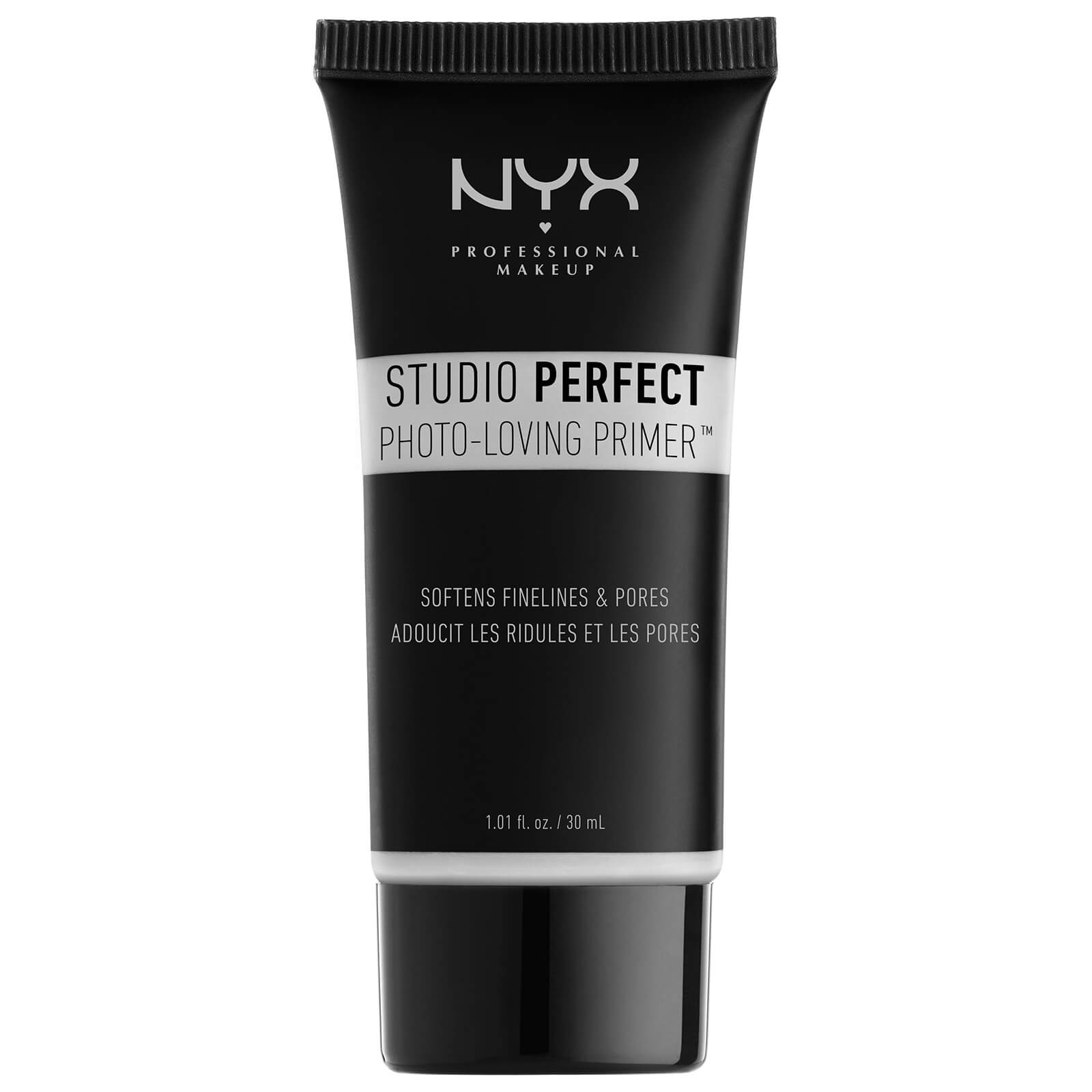
Best for: Normal to oily skin
NYX are known not only for its affordable makeup products, but also for being a staple in many a makeup artist's kit—and if the pros use it, you know it's got to be good. This tube may be small, but a little amount goes a long way towards reducing shine and creating a smooth canvas for makeup application.
Pros
- Budget-friendly
- Smooth application
- Blurs texture
Cons
- Lacks hydration or skincare benefits
What are advantages of silicone-based primers?
Silicone-based products may get a bad rap, but when it comes to priming skin, you really can't beat a silicone-rich formula. Namely, because they address some of the key reasons why people wear and use primers in the first place—creating a smooth canvas for makeup, blurring pores and fine lines, controlling oil and shine, and extending makeup longevity.
Some of the most commonly used silicones like dimethicone and cyclopentasiloxane help to fill in uneven texture, making pores and fine lines appear smaller, and creating a soft-focus, smooth surface. They also reduce friction between your skin and foundation, so makeup glides on more easily and evenly, and once applied, they form a semi-occlusive layer that grips foundation to skin, helping it stay in place for longer.
In addition, silicone-based products are water-repellent, which helps makeup hold up better in humid climates or sweaty conditions and they also mattify the skin and prevent oil from disturbing makeup, by absorbing excess sebum.
What's more, if you struggle with makeup pilling on your skin as you apply it, using a silicone-based primer can make a big difference. When layered together, silicone-based primers and foundations bond together, preventing pilling and reducing patchiness.
What are the disadvantages of silicone-based primers?
Like anything in beauty, silicone-based primers are not without their drawbacks. If layered improperly (for example freshly-applied skincare or water-based makeup products), silicones can ball up and pill, ruining your makeup application. For this reason, if you're using a silicone-based primer then it's important to let your skincare absorb entirely before applying makeup, and to use a silicone-based (not a water-based) foundation.
Since silicones form a barrier on the skin, some people find that they feel heavy or greasy. While silicones themselves are generally non-comedogenic, this occlusive barrier can trap other pore-cloggers like sweat, oil and dirt, potentially worsening breakouts for acne-prone skin types. For this reason, it's important that they're removed properly, with thorough double cleansing with a good face wash.
How we tested the best silicone-based primers
The great thing about testing primers is that even with just one day's wear, it's really easy to pick up on their benefits and drawbacks. When testing, we made notes on their ease of application, the way they layered with other products, how good our makeup looked throughout the day, and of course, how long it lasted. What's more, the team tested on a variety of different skin types, so we were able to assess which products would work best for different skin concerns and goals.
Why Trust Us
At Who What Wear UK, we know that beauty isn’t one-size-fits-all. Our editors have tested thousands of products, including skincare, makeup, hair and nails, over the years and work closely with trusted experts—dermatologists, make-up artists and leading industry insiders—to ensure every guide is well-researched, inclusive and relevant to you.We focus on formulas that deliver, whether they’re affordable favourites or luxury investments. Our product selection is based on tangible results, ingredient know-how and what we’d truly recommend to a friend.
Grace Day is a beauty editor and content creator. She has over 10 years of beauty-industry experience, spanning editorial, retail, and e-commerce, which gives her a unique understanding into how people shop for their beauty routines.
While studying for a history degree (specialising in the history of beauty) and working as a beauty adviser in department stores, Grace started writing her own beauty blog in order to share the products she discovered while dealing with acne. After graduating, she moved to Beauty Bay as beauty editor and content manager. Grace is currently a beauty contributor to Who What Wear. She has also written for Hypebae and PopSugar and works as a brand consultant and copywriter.